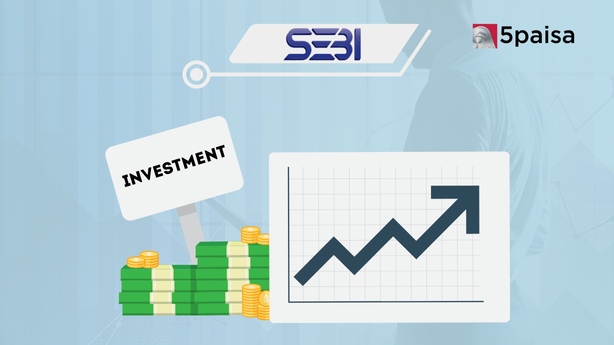Cable and Wire Stocks Decline for Second Session Amid Aditya Birla Group's Market Entry
SEBI bars Subhash Chandra and Punit Goenka from key positions

It was long coming and the order finally came on June 12, 2023. The Securities and Exchange Board of India (SEBI), issued an interim order barring the two promoters of Essel group viz. Subhash Chandra and Punit Goenka from holding any key managerial position in any listed entity. Incidentally, Subhash Chandra had promoted Zee more than 30 years back and he is considered one of the pioneers of the private sector media business in India. Punit Goenka, who was heading group company, Dish TV, is the son of Subhash Chandra. Both Subhash Chandra and Punit Goenka have multiple directorships across the Essel Group. This is an interim order and the promoters have been given 21 days to file their responses. But if the order becomes final, then both Subhash Chandra and Punit Goenka will not be allowed to hold any key managerial position (KMP) in any listed entity in India.
Case pertains to the alleged round tripping of funds
The genesis of the SEBI investigation goes back by almost 4 years when two of the directors of Zee Entertainment Ltd had raised objections over the board being kept in the dark about certain inter group transactions in the Essel group. Sunil Kumar and Neharika Vohra were independent directors of Zee Entertainment and both had resigned after it came to light that there were some intergroup transactions that had been done by the promoter group without either consulting or informing the board.
That is mandatory under the extant Companies Act. As per the complaint filed by the independent directors at that point of time, the founder of the Essel Group, Subhash Chandra, had provided a Letter of Comfort (LoC) in September 2018, towards credit facilities of Rs200 crore availed by certain group companies from Yes Bank. A letter of comfort does not have legal sanctity but is accepted by many banks in good faith. However, here the issue was that it was issued without the knowledge of the board of Zee Entertainment Ltd, which was a violation of SEBI’s Listing Obligations and Disclosure Requirements (LODR) norms.
What exactly was the Letter of Comfort about?
As stated earlier, the letter of comfort does not have legal sanctity. However, it is accepted by many banks when it is issued by the promoter themselves. That is a regular practice. In this case, the letter of comfort assured Yes Bank that Zee Entertainment and the promoters were aware of the loan availed by their group companies. Further, the letter of comfort also assures the bank that the parent company will its subsidiary in the loan process and in case of any impediments, it will help them meet the legal objections. Generally, letter of comfort is backed by the promoter personal shareholdings as collateral.
However, in this case the issue was a lot more complicated. Zee had given Yes Bank one of its own FDs worth Rs200 crore, which was equivalent to the loan of Rs200 given by Yes Bank to the seven associate companies of the Essel group. These 7 companies included Pan India Infraprojects, Essel Green Mobility, Essel Corporate Resources, Essel Utilities Distribution Company, Essel Business Excellence Services, Pan India Network Infravest and Living Entertainment Enterprises. Incidentally, all the companies are owned by the family of Subhash Chandra and Punit Goenka. Yes Bank had then adjusted the Rs200 crore FD of Zee group against the dues of the 7 group companies. This is an inter-group transfer of funds, but the board was not kept informed about the transaction.
Zee gives explanation for the fund movement
When SEBI had queried Zee about these group transactions and the FD of Zee being used to repay loans of group companies, ZEEL had submitted to SEBI that the Rs200 crore had been received back from these group companies. In short, the contention of Zee was that the Rs200 crore FD of Zee used to defray the loans of Yes Bank were repaid by the seven companies back to Zee. In short it looks like a fair deal with the funds coming back and with bank transactions to back such a statement. That means; the only lapse was that the board was not kept informed in this case. However, it is not that simple. The SEBI investigation revealed more complexities even in the repayment of the Rs200 crore amount.
Zee’s explanation was right on paper, but when SEBI scratched the surface, a deeper plot was revealed. For instance, SEBI found that funds that had been paid back by the seven group companies to ZEEL had actually originated from Zee itself. In short, ZEEL was using its funds to bail out group companies and then the group companies were repaying the funds back to the listed entity with funds that it got for the same companies. That is what irked SEBI. What it meant was that Rs200 crore went out of a listed company without informing the board to repay the loans of group entities. However, when it came to repayment, the funds for repaying ZEEL came from Zee itself. In short, a listed entity and its shareholders had lost money to bail out unlisted entities owned privately by the Essel family members.
What is SEBI’s contention now?
According to SEBI, the first lapse was that Chandra had issued the letter of comfort without taking the board into confidence. However, bigger lapses were yet to come. When the listed entity funds are used to defray the loans of an unlisted group entity, it is OK if it is approved by the board and it is an arm’s length transaction. In this case, ZEEL funds were used to repay the loans of seven group companies and then the funds transferred from ZEEL to the group companies to repay the loan. That is a classic case of diversion of funds, which is what SEBI has a problem with. According to SEBI, the promoters had a direct role in the diversion of funds of ZEEL into closely held unlisted entities of the group.
In its interim report, SEBI has captured the complete audit trail of funds were traced from ZEEL to the group companies and back to ZEEL. The movement of funds was done by layering it through 10-12 levels but the end outcome was never in doubt. Ironically, between FY19 and FY23, when the price of Zee had dropped by two-third, the promoter holdings had also dropped from 41.62% to 3.99%.
SEBI has made a watertight case here. It remains to be seen what happens next, but for that we need to await the response from Subhash Chandra and Punit Goenka.
- Flat ₹20 Brokerage
- Next-gen Trading
- Advance Charting
- Actionable Ideas
Trending on 5paisa
02
 5paisa Research Team
5paisa Research Team
03
 5paisa Research Team
5paisa Research Team
04
 5paisa Research Team
5paisa Research Team
Indian Market Related Articles
Disclaimer: Investment in securities market are subject to market risks, read all the related documents carefully before investing. For detailed disclaimer please Click here.




